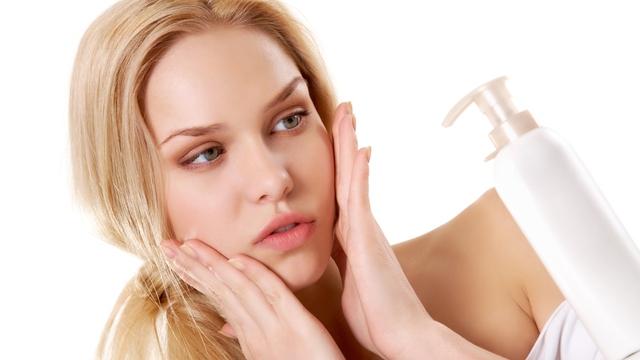 MonkeyBusiness Images/PhotoSpin
MonkeyBusiness Images/PhotoSpin
In the past decade, the beauty industry has gotten on board with terms such as "organic" and "toxic-free".
Due to loopholes in a poorly regulated market, products labeled organic and non-toxic don’t always meet peoples’ perceptions, nor do they guarantee any added benefits to mainstream products.
It is important for consumers to understand what these terms mean to make informed decisions and determine the safety of these products.
Toxic chemicals are chemicals that cause harm when inhaled, swallowed or absorbed by the skin. Some are considered poisons, others can be taken in small amounts without problems.
Chemicals labeled as non-toxic, or toxic-free are thought to not cause adverse health effects. However, the term non-toxic is not standardized or regulated. Companies manufacturing the product can justify the term as they choose.
The term “non-toxic,” in essence, means something that will not cause harm to your body or the environment. All chemicals can be toxic and non-toxic based on the level of exposure and how they interact with one another.
Chemicals can be safe in small quantities, but prolonged exposure can be detrimental. For example, phthalates are a group of chemicals found in artificial fragrances.
Phthalates can trigger allergies and have been linked to birth defects and infertility. If possible, consumers should opt for fragrance-free products.
The toxicity of a chemical for each individual depends on the level of exposure and the presence of other chemicals within the body.
Although the term "non-toxic" does not have to meet a specific criteria, the term "organic" has to meet USDA criteria. According to the USDA, "organic" is defined as food or agricultural products that have been produced through approved methods.
For example, organic livestock must be fed organic feed without antibiotics, growth hormones or other animal products.
Organic beauty products are made with ingredients that have not been grown with synthetic fertilizers or pesticides.
Organic beauty products are certified by the USDA National Organic Program (NOP) and come with a USDA seal. NOP sets standards on the production, handling and processing of organically grown agricultural products.
Companies can modify natural ingredients, making products no longer organic by the time they hit the shelves. Chemicals found in beauty products are complex and require consumers to use their own precaution and educate themselves.
To educate yourself further on what determines products to be organic, check out the USDA’s website.
To educate yourself further on whether or not your beauty products are toxic, check out the Environmental Working Group's website Skin Deep.
Sources:
Self. What does organic mean for beauty products? Web. 23 January 2015.
http://www.self.com/flash/beauty-blog/2012/02/what-does-organic-mean-for-bea
Treehugger. Everything you need to know about natural skin care. Web. 22 January 2015
http://www.treehugger.com/htgg/how-to-go-green-natural-skin-care.html
EmpowHER. Toxic-Free, Natural and Organic Products: How Are They Different? Web. 26 January 2015
https://www.empowher.com/skin-products/content/toxic-free-natural-and-organic-products-how-are-they-different
Reviewed January 28, 2015
by Michele Blacksberg RN
Edited by Jody Smith





Add a Comment3 Comments
You are right, FDA should say USDA, I’ve changed it.
Regulation of personal products overlaps with agricultural regulations since so many products use substances that are grown in the ground.
According to the USDA’s site: ● USDA regulates the term “organic” as it applies to agricultural products through its National Organic Program (NOP) regulation, 7 CFR Part 205.
● If a cosmetic, body care product, or personal care product contains or is made up of agricultural ingredients, and can meet the USDA/NOP organic production, handling, processing and labeling standards, it may be eligible to be certified under the NOP regulations.
● “Made with organic ingredients”-- Products contain at least 70 percent organic ingredients and product label can list up to three of the organic ingredients or “food” groups on the principal display panel. For example, body lotion made with at least 70 percent organic ingredients (excluding water and salt) and only organic herbs may be labeled either “body lotion made with organic lavender, rosemary, and chamomile,” or “body lotion made with organic herbs.” Products may not display the USDA Organic Seal and must display the certifying agent’s name and address
http://www.ams.usda.gov/AMSv1.0/getfile?dDocName=STELPRDC5068442&acct=no...
February 9, 2015 - 10:14amThis Comment
This company does strive towards USDA certification. I do not know how many others do as well but it does provide some assurance to customers that those who do try and meet those standards can use that to show their labeling use of "organic" is more reliable.
http://www.badgerbalm.com/s-8-natural-organic-fair-trade.aspx
February 10, 2015 - 11:19amThis Comment
"The term 'organic' has to meet FDA criteria." This false. The FDA has nothing to do with organic certification.
"Organic beauty products are certified by the USDA National Organic Program (NOP)." Wrong. Nearly ALL "organic" personal care products are NOT certified to the USDA standard.
February 3, 2015 - 10:41amThis Comment